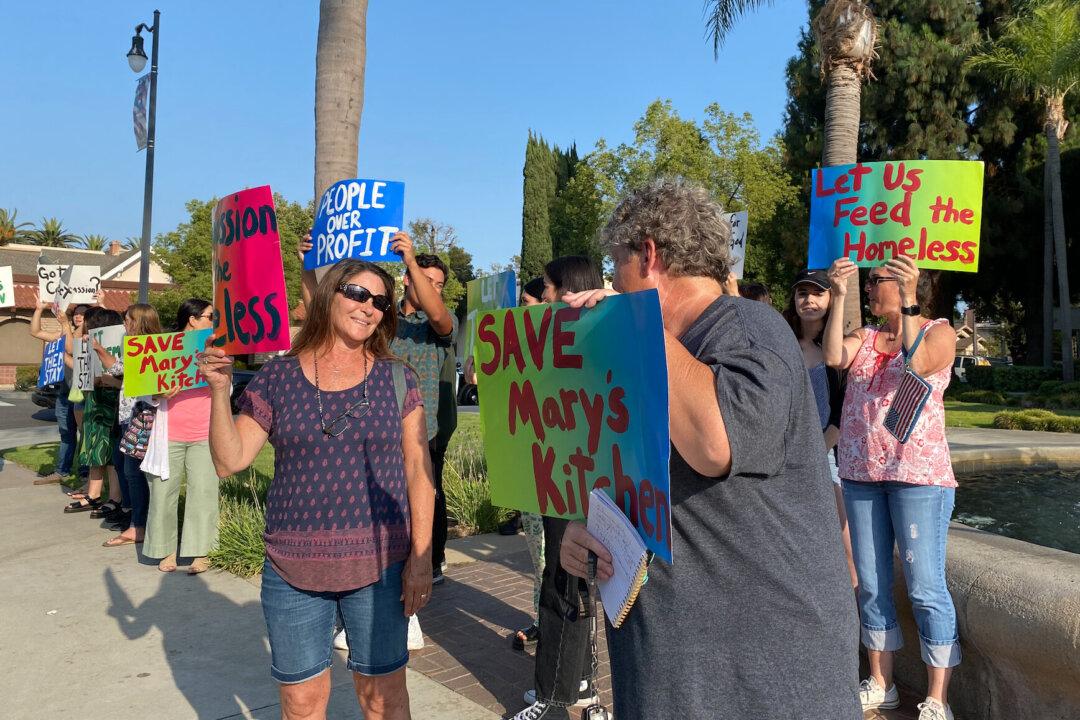SANTA ANA, Calif.—A hearing on a request for an injunction to block Orange from shutting down the Mary’s Kitchen homeless services provider is scheduled for Sept. 30 in a Santa Ana federal courtroom.
U.S. District Judge David O. Carter approved a request for a temporary restraining order on Sept. 17, noting that Mary’s Kitchen is the “sole homeless service provider for adults without minor children” in Orange and has operated in the city for nearly 36 years, starting in 1986.





